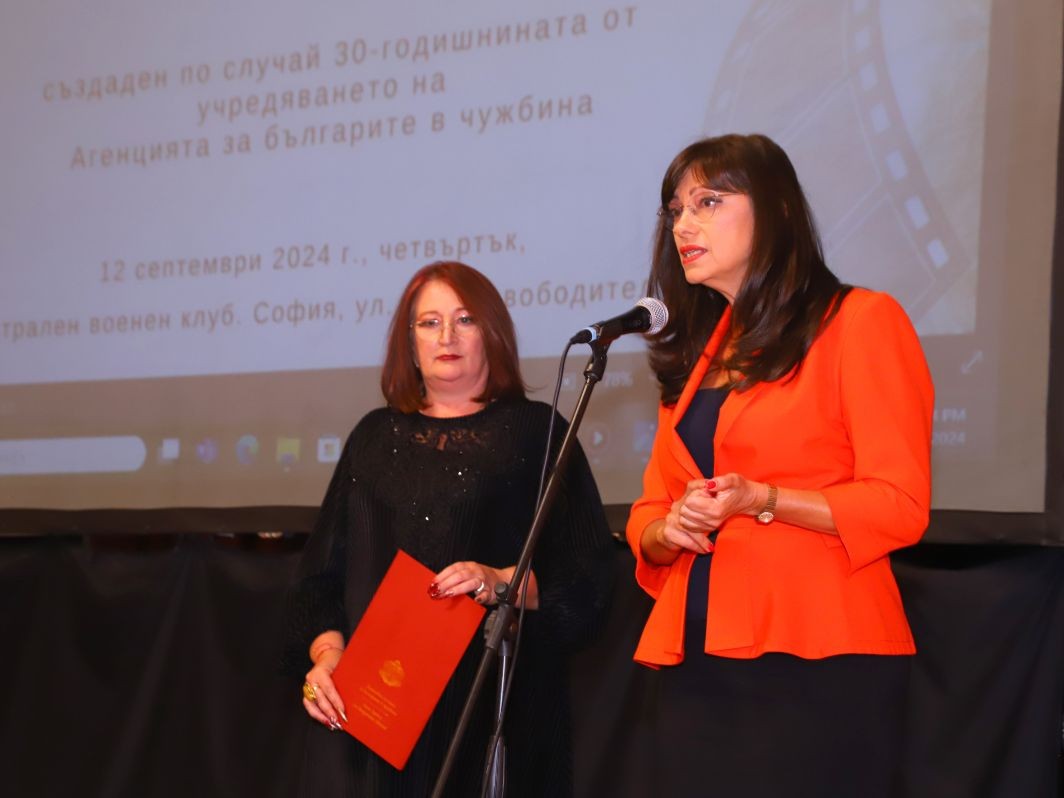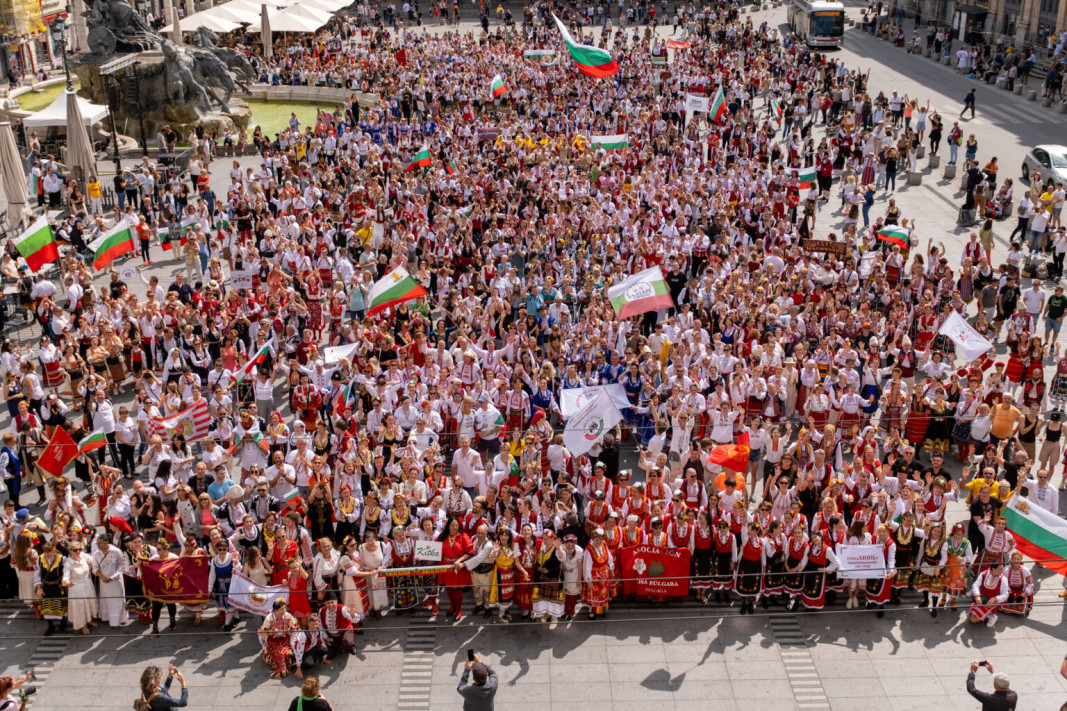‘The Bulgarian horo is a kind of magic — an enchanted circle that pulses with the unique energy of our spirit, our traditions and our identity,’ says journalist Milena Milotinova, who recently presented her new documentary The Magic of the Bulgarian Horo, dedicated to the traditional chain dance. The film was shot during two major Bulgarian cultural events abroad — the “Festival of the Letters” in Milan and the 10th edition of Na Megdana v Drugata Bulgaria (“In the Village Square of the Other Bulgaria”), the travelling festival which this year took place in Lyon.

This is not Milotinova’s first project to focus on Bulgarians around the world. Last year, to mark the 30th anniversary of the State Agency for Bulgarians Abroad, she released the documentary The Heart of the Other Bulgaria. It is with the similarities and differences between these two films that our conversation begins.

'The atmosphere surrounding the rehearsals of the folk ensembles and their performances on stage is incredibly energising and full of positivity. There’s a rhythm in the air that naturally draws you into the dance, making you move along with the steps. Some of the non-Bulgarians dance remarkably well, and I couldn’t tell them apart; I chose them as interviewees purely by their faces.'

Rhythm, energy, and the capacity to foster a sense of community are the qualities of folklore that make it especially effective at uniting Bulgarians abroad, while also engaging people from other backgrounds. This is particularly significant in today’s world, where individualism often prevails.
'Historically, folklore has preserved our identity, just as our Cyrillic script and language have,” Milotinova tells Radio Bulgaria. “Our folklore developed alongside the Cyrillic script, which is why the two are so closely intertwined.' During the ‘Festival of the Letters’ in Milan, for example, participants parade through the streets carrying giant letters and wearing traditional costumes, dancing the horo and singing folk songs.”

Before filming, Milotinova and her team conducted extensive research. They were especially grateful for the invitation to participate in the meeting of the Association of Folklore Ensembles in Lyon, hosted by the ensemble Ot Izvora and Anita Ekenova — the driving force behind the travelling folklore festival Na Megdana na Drugata Bulgaria, who was rightly honoured with the “Bulgarian Woman of the Year” award by the State Agency for Bulgarians Abroad.

Since its premiere in Bulgaria, Milena Milotinova has received numerous invitations to screen the film for Bulgarian communities in other European cities, all of whom are eager to experience the magic of the Bulgarian horo for themselves.
The feast of the Annunciation (Blagoveshtenie in Bulgaria) is a holy day , a symbol of God’s infinite mercy to people and especially to women, blessed to bear new life, but also an embodiment of the eternal human longing for something better in the..
Clocks and bells will ring out in the center of Stara Zagora on Saturday, when the city will host the XXIV Masquerade Games Festival . The event will start with a traditional parade of participants. Attractive babugers, araps, old men and other..
Today marks the 88th anniversary of the birth of remarkable Bulgaria folk singer Nadka Karadzhova . Born on March 14, 1937 in the then Pazardzhik village of Trivoditsi (today - Plovdiv region), she is a descendant of an old musical family. At the age..

+359 2 9336 661
